
Research, Guides and Other Information
The Aboriginal Languages Trust aims to support the aspirations of Aboriginal Language Custodians across NSW. The Trust acknowledges Aboriginal peoples, Ancestors and Old People who have held Language Knowledge since time immemorial. The Trust acknowledges the sustained efforts of Aboriginal Communities to protect, strengthen, care for and pass on Languages, Knowledges and Cultures.
Aboriginal peoples have the right to be self-determining in relation to their Languages, Knowledges and Cultures. Languages are one part of a holistic Culture; when Aboriginal Language Custodians share Language, they are also sharing other elements of Culture – such as Knowledge and stories of Country, scientific or cultural knowledge, songs, ceremony and other Cultural practice.
If you are or will be working with Aboriginal Languages, you need to follow ethical protocols that support the rights of Aboriginal peoples to all elements of their Cultural heritage, also known as Aboriginal Cultural and Intellectual Property (ACIP).
-
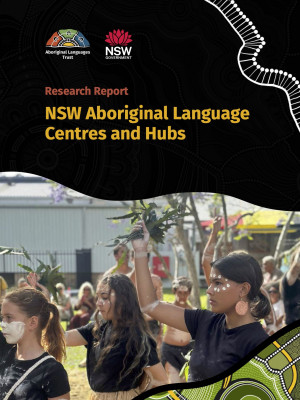
NSW Aboriginal Language Centres and Hubs Research Report
This report provides insights into the different types of Aboriginal Language Centres operating in NSW, their challenges and factors that make them sustainable.
Who is this for?
This report is for Aboriginal Communities, organisations and government departments who are interested in the status of Aboriginal Language Centres in NSW and what actions are needed to support their growth and sustainability.
-
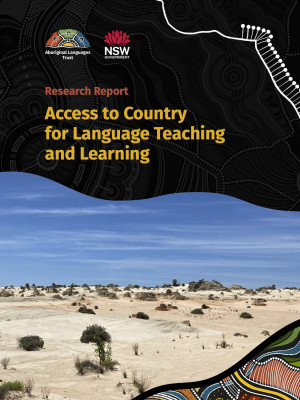
Access To Country for Language Teaching and Learning Research Report
This report explores why and how Aboriginal Communities in NSW are accessing Country for Language Teaching and Learning and the benefits of doing so, the barriers they face and opportunities to improve access.
Who is this for?
This report is for Aboriginal Communities, government departments and agencies and anyone else wanting to gain a deeper insight into the benefits of teaching Language on Country and how access to Country can be improved.
-
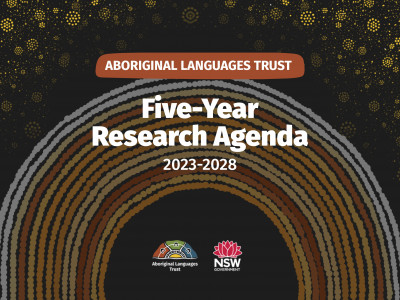
ALT 5-Year Research Agenda
Who is this for?
The Aboriginal Languages Trust’s research agenda outlines a series of research activities that the Trust will deliver over the next five years. The goal of this research agenda is to resource and inform growth in the Aboriginal Languages of NSW. This document is for all audiences who wish to know more about the research work of the Trust.
-
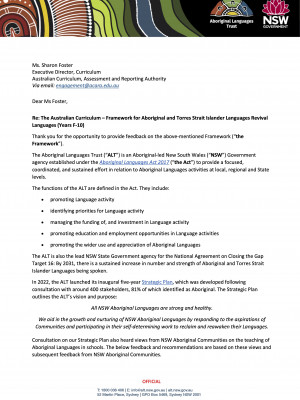
ALT Submission to the Australian Curriculum Review
Framework for Aboriginal and Torres Strait Islander Languages
Who is this for?
In November 2023, the ALT provided a submission in response to the Australian Curriculum Review of the Framework for Aboriginal and Torres Strait islander Languages (Language Revival). The framework is a national curriculum document, which provides a way for schools in Australia to support the teaching and learning for Aboriginal and Torres Strait Islander Languages.
-
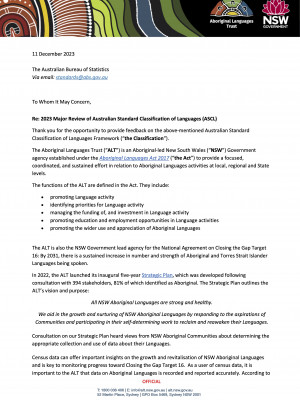
ALT Submission to the Major Review of the Australian Standard Classification of Languages
Who is this for?
In December 2023, the ALT provided a submission in response to the Australian Bureau of Statistics’ Review of the Australian Standard Classification of Languages (ASCL). The ASCL provides a list of Languages and groups of Languages that can be used for the collection and use of statistics and other data in relation to Languages spoken in Australia. It reflects the Languages that are widely used in the Australian Community.
-
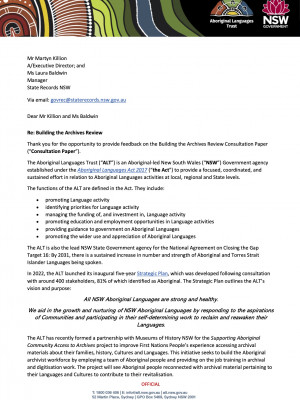
ALT submission to the Building the Archives Review
Who is this for?
In June 2023, the ALT provided a submission in response to Building the Archives, a policy that guides State Records NSW in making decision about which records should be retained as State archives. The submission puts forwards the ALT's position on archives pertaining to Aboriginal Peoples and Communities in NSW and how these records are managed.
-

ALT submission to the International Decade of Indigenous Languages Directions Group
Who is this for?
In May 2023, the ALT provided a submission in response to the Australian International Decade of Indigenous Languages Directions Group’s Priorities Paper. The submission puts forward the ALT’s position on National Languages legislation, Language learning and teaching, and Aboriginal Community access to information and archives.
-
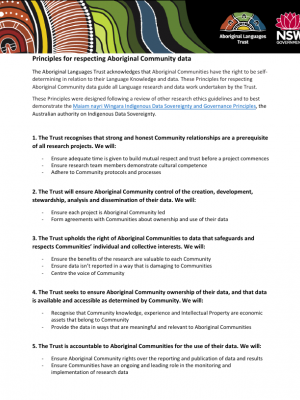
Aboriginal Languages Trust Principles for respecting Aboriginal Community Data
An overview of the principles which underscore the research and policy work of the Aboriginal Languages Trust.
Who is this for?
All audiences who wish to utilise, read and understand the principles behind the Trust’s research and policy work.
-
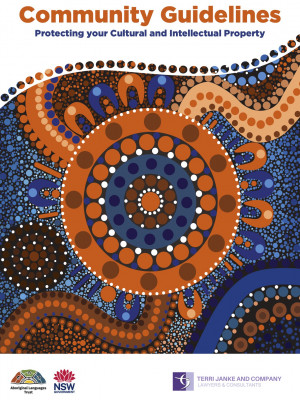
ACIP - Community Guidelines
Protecting your Cultural and Intellectual Property
Who is this for?
For Aboriginal Communities to help in the understanding of your rights under Australian law, and what you need to do and say to assert your rights to control and protect Language and other aspects of your cultural heritage.
The following documents support this guide:
-
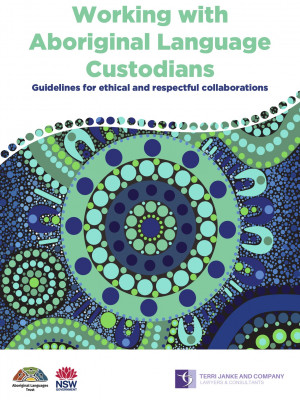
ACIP - Working with Aboriginal Language Custodians
Guidelines for ethical and respectful collaboration
Who is this for?
As there is limited protection for Aboriginal Cultural and Intellectual Property (ACIP) rights under Australian laws, this Community Guideline is created to Aboriginal Language Custodians to understand your rights under Australian law, and what you need to do and say to assert your rights to control and protect Language and other aspects of your cultural heritage.
The following documents support this guide:
-
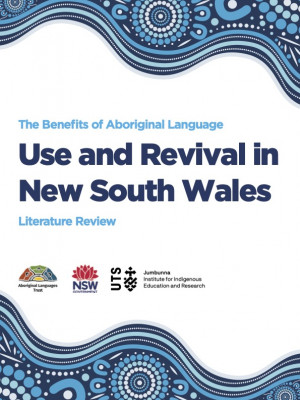
The Benefits of Aboriginal Language
Use and Revival in New South Wales
Who is this for?
This literature review is for anyone who would like to know more about the wellbeing, educational, economic and other benefits of Aboriginal people using and reviving their Languages in New South Wales. It is especially useful for Aboriginal Language communities who want information about the value of their Language programs (for example, to apply for funding), for government departments when making decisions about programs and policies, and for others such as academics who want to gain a greater insight into Aboriginal Language revival in New South Wales.
-
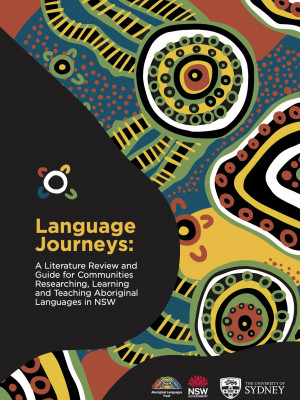
Language Journeys
A Literature Review and Guide for Communities Researching, Learning and Teaching Aboriginal Languages in NSW
Who is this for?
This guide is for Aboriginal language communities who are at any stage of researching, learning or teaching their Languages. If you are just starting out on revitalising your Language, or are further down the track and looking for more ideas, this guide will give you lots of practical information to build on your work.
The following documents support this guide:
-
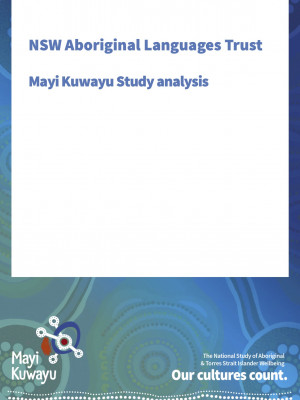
NSW Aboriginal Language Data from the Mayi Kuwayu Study
Who is this for?
This report, which is drawn from the Mayi Kuwayi National Study of Aboriginal and Torres Strait Islander Wellbeing, is for anyone who would like to know more about the links between Aboriginal Languages and wellbeing in NSW. It shows that Aboriginal Language use in NSW has positive links to health, wellbeing, socio-economic and cultural outcomes for Aboriginal people.



